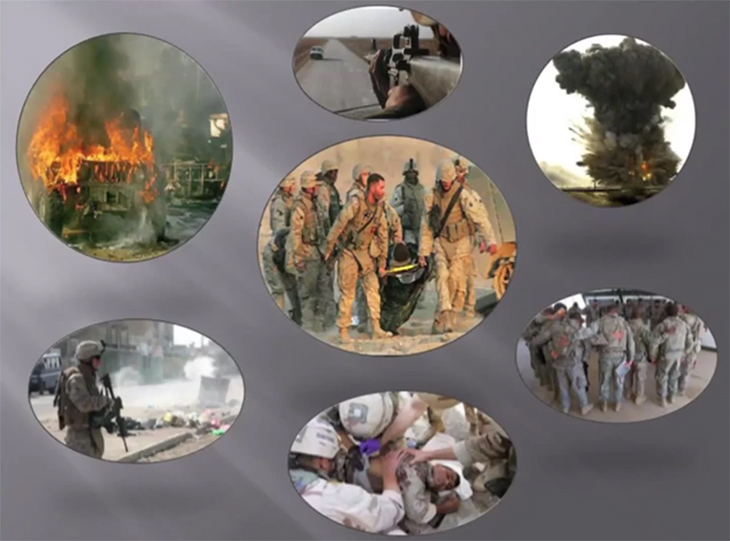Reminding You of What You Already Know
If you have seen even one combat Veteran returning from Iraq or Afghanistan, then you have been part of something unparalleled in our nation – probably unparalleled in human history. You are part of a team comprising thousands of inter-connected individuals, working in a systematic way, providing integrated support for 2.7 million people that have been off to war.
Since 2001, more than 2.7 million Americans have been deployed to combat zones. 1.8 million of these Veterans are eligible for VA care and we have seen about 1.12 million of these Soldiers, Sailors, Marines and Airmen in the VA healthcare system.
In the past, upon coming home from war, a service member might say “Oh, I got knocked out a time or two” or “I got my bell rung” and that would be the end of it. But over the past 10 years, the VA’s Polytrauma System of Care has screened nearly 1 million Veterans for traumatic brain injury. So just the TBI piece alone is unparalleled. Add to these advances in the valuation and treatment for post-traumatic stress, other mental health concerns, physical injuries, amputations and chronic pain, as well as greater attention to and support for psychosocial concerns related to family, relationship, financial, educational and occupational needs.
You are part of something that is unparalleled in human history both in terms of its size and in terms of its scope.
My Fear
Even though we have done all this work in post-deployment care, making so many strides forward, my fear is that we could re-enact what Abram Kardiner noticed when taking care of WWII Veterans. He said that after our experiences caring for Veterans from WWI we knew the basics of how combat affected those who are touched by it, and the basics of what is needed to take care of Veterans returning from combat. Yet, even knowing this, we did not take full advantage of those lessons learned to help Veterans returning from WWII.
So often we try to close a chapter and put things behind us. That is okay as long as we learned from what happened, paid attention to the chapter just completed, and carry that information and its lessons with us as we move ahead in the story.
My Hope
As we transition from times of war to times of peace, my hope is we can take the collective wisdom of people who have been taking care of Veterans for a decade, take the collective wisdom of combat Veterans and their families from recent as well as all prior conflicts, and build upon the lessons learned to collectively create a “Roadmap for the Odyssey.”
This road map can only emerge from a national conversation, led by Veterans and their families, supported by all of us in the VA, and the supported by the nation that is trying to walk along with someone who have been through the worst and given so much.
A road map will that say, “This is who we are, this is how we are, and this is what we do as a nation for those we send off to war, for their families, to help them truly and fully ‘return home.’”

Topics in this story
More Stories
Veteran Byron Potier weighed almost 300 pounds and was tired and lethargic. He was the perfect candidate for gastric sleeve surgery.
How much do you know about VA care, benefits and services? Don’t miss out on what you've earned—check out the "2025 VA Federal Benefits Guide for Veterans, Dependents, Survivors, and Caregivers" handbook to learn more.
Feeling stressed? Your breath can help you relax and focus. Take 3 minutes to reset and prioritize your well being for this week's #LiveWholeHealth practice.






